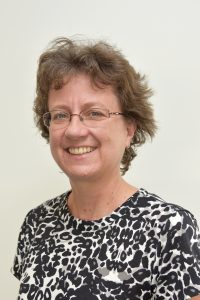Why did you decide to study the MSc Educational Assessment course at Oxford University?
I wanted to broaden my understanding of educational assessment beyond what I had experienced working in senior schools and at an exam board.
What is your full time job?
I was a researcher for an exam board in England. As a statistician by training I particularly got involved with quantitative projects. I also got involved in supporting the awarding season and standard setting. Recently I moved to the Standards and Testing Authority to take up a role as a psychometrician.
What strategies did you use to balance your studies with your work and other commitments?
I had support from work to attend the teaching weeks. Much of the reading I undertook in evenings and weekends. I found it was important to pace myself and not get behind.
How did the programme support and engage you as a distance learning student?
The reading was available digitally through links that the team had created – this saved a lot of time. The residential weeks were really important ways to focus on the key points from the reading and to meet the department team and other students. I was lucky to be there face to face for my first year. The second year was largely completed through online supervision sessions due to covid, but I found these very effective.
What did you particularly like about the course?
I enjoyed being back at university but in a part-time way. I chose this course over others because it was taught in complete weeks at Oxford, rather through evening or weekend sessions which would have meant far more travelling. I also wanted to study the psychometrics and advanced analytical techniques modules.
What did you most value about the teaching at the department?
The skill and expertise of the lecturers – but also their friendliness, their up-to-date knowledge and their enthusiasm for the subject.
What’s the community (students & staff) like at the department?
I only met staff involved with the course but they were all keen to help. The administration and library staff are very much part of the team, and all very approachable. As students we encouraged each other through the dissertation time, and we have kept in touch.
How did your College add to your experience at Oxford?
College life was something I missed out on being a remote student. It was a shame, but we did have a couple of lovely dinners that gave us an insight into another side of Oxford student life. As I stayed in Oxford, I did make sure I took the time to explore the city and visit the Bodleian library, the Ashmolean museum, the natural history museum, and some of the older colleges (and some of its many pubs).
How has studying the course helped with your professional development?
I think I have a much broader understanding of the breadth of issues old and new involved in educational assessment. This has informed my work and I think will leave me better equipped to adapt to any changes that come our way in a post-covid world.
What advice would you give to new students who are about to start the course?
Be prepared for a lot of reading! Come to Oxford if you can, particularly in the Trinity term and walk around the city and along the rivers. Jot down any ideas of what you could do your dissertation on during your first year – it will dominate your life in year 2 and so you must find something that will engage you for the whole year.
FIND OUT ABOUT THE MSC IN EDUCATIONAL ASSESSMENT HERE: WWW.EDUCATION.OX.AC.UK/PROGRAMMES/MSC-EDUCATIONAL-ASSESSMENT/

